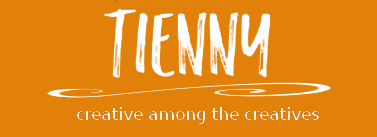The third-day week as modern weekTīwesdægIn Anglo-SaxonsTwice goodIn HebrewThe third day of work or studyThroughout centuriesTuesdayThe third day of labours
Tag Archives | Education
Monday
Babylonians authors namedThe seven-day week as modern weekAnglo-Saxons continues the batonMondandaegIn Anglo-SaxonsThe moon’s dayIn Old English wordDies LunaeIn LatinThe second day of the weekThe first day of work or studyThroughout centuriesMondayThe first day of work or study
Sunday
Babylonians start the seven-day weekBring it to Latin-speaking Romansdiēs sōlisIn LatinSunnandaegIn Old English wordSunnendayIn Middle English wordThe first day of the weekA day of restGermans and Nordics adaptLanguage usage terms change dedicationThroughout centuriesSundayOur rest days
Endless Cycle of Day
An endless cycle of a dayFrom midnight to DawnFrom Dawn to morningFrom morning to afternoonFrom afternoon to eveningFrom evening to duskFrom dusk to nightFrom night to midnightThe day cycle repeatsThis is the endless cycle of days
Hope Short Screenwriter Podcast Interview with Matthew Toffolo
This is a sequel to my Hope Short Animation Screenwriter Interview. Matthew Toffolo interviewed and included me into his podcast at Wildsound festival, which is available at their apple podcast or their podcast website. I feel so grateful to see the result of my hardwork.
Hope Short Animation Screenwriter Interview
I am thankful for Matthew (Wild Sound Festival) interview me for my Hope Short Animation Script upon selecting my animation for the animation festival mentioned at Hope Short Animation Script performed at Animation Festival with Matthew Toffolo interviews for my Hope short animation script is available at his website. 1. What is your screenplay about? […]
Hope Short Animation Script performed at Animation Festival
I feel privileged for my Hope Short Animation Script is selected into Animation Festival available at Animation Festival for your edutainment time with your family members and friends. nn
How to use storytelling into the education syllabus setting?
Educative narrative storytelling provides the relevant neuroscience of the brain organization and structure. It is one of the most effective methods to capture meaningful patterns from chaos. Such strategy prevents confusion in the brain. Such knowledge encourages educators to add new ideas and objects with connections, recognizable patterns, and relationships through storytelling. Storytelling is often […]
How does the story make learning better?
Pinto, G., Tarchi, C., & Bigozzi, L. (2018) shares their fifty-six primary school students on their study practices to enhance children’s interaction quality. They use macro-level and micro-level analysis to the students’ quality interaction. The macro-level is the narrative structure and coherence, whereas micro-level focus on the narrative cohesion. Since young, the children are continuously […]
Math and Creativity in Primary 1 Girls
This https://www.asiaone.com/…/primary-1-girls-answers-math-ques… is about math answers from primary 1 girls. It makes sense if you see from the child’s perspective. Is it a creativity or matching game?
